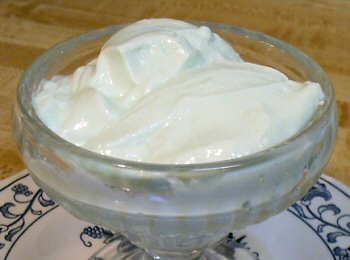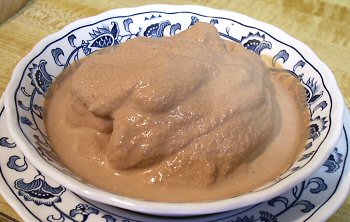Frozen Yogurt vs. Ice Cream: Is One Healthier?
Frozen Yogurt
* Calories: 100 calories per 1/2 cup
* Sugar: 14 grams per 1/2 cup
* Fat: 2 grams per 1/2 cup
* Protein: 4 grams per 1/2 cup
* Calcium: 100 mg per 1/2 cup
Ice Cream
* Calories: 150 calories per 1/2 cup
* Sugar: 20 grams per 1/2 cup
* Fat: 10 grams per 1/2 cup
* Protein: 3 grams per 1/2 cup
* Calcium: 80 mg per 1/2 cup
Comparison
* Calories: Frozen yogurt is lower in calories than ice cream.
* Sugar: Frozen yogurt is lower in sugar than ice cream.
* Fat: Frozen yogurt is lower in fat than ice cream.
* Protein: Frozen yogurt is higher in protein than ice cream.
* Calcium: Frozen yogurt is higher in calcium than ice cream, but is still lower in calcium than plain yogurt.
Health Benefits of Frozen Yogurt
* Low in calories, sugar, and fat: Frozen yogurt can be a good choice for people who are looking for a healthier dessert option.
* High in protein: Frozen yogurt is a good source of protein, which can help keep you feeling full and satisfied.
* Contains live cultures: Frozen yogurt often contains live cultures, which can help to improve digestion and boost the immune system.
* Good source of calcium: Frozen yogurt is a good source of calcium, which is important for strong bones and teeth.
Potential Downsides of Frozen Yogurt
* Added sugars: Many frozen yogurt brands add sugar to their products, which can increase the calorie content and negate some of the health benefits of frozen yogurt.
* Artificial sweeteners: Some frozen yogurt brands use artificial sweeteners, which can have a negative impact on gut health.
* Low in calcium: Frozen yogurt is lower in calcium than plain yogurt, so it is not a good choice for people who are looking for a good source of calcium.
Health Benefits of Ice Cream
* Can provide energy: Ice cream is a good source of carbohydrates, which can provide energy.
* Good source of protein: Ice cream is a good source of protein, which can help keep you feeling full and satisfied.
* Can be a source of vitamins and minerals: Ice cream can be a source of vitamins and minerals, such as calcium, phosphorus, and vitamin A.
* Can help to improve mood: Ice cream can help to improve mood by releasing dopamine, a neurotransmitter that is associated with pleasure and reward.
Potential Downsides of Ice Cream
* High in calories, sugar, and fat: Ice cream is high in calories, sugar, and fat, so it is not a good choice for people who are looking for a healthy dessert option.
* Can contribute to weight gain: Eating ice cream in excess can contribute to weight gain.
* Can increase the risk of certain health conditions: Eating too much ice cream can increase the risk of certain health conditions, such as heart disease, diabetes, and obesity.
Which One Is Healthier?
Frozen yogurt and ice cream can both be a part of a healthy diet, but frozen yogurt is generally the healthier choice. Frozen yogurt is lower in calories, sugar, and fat than ice cream, and it is higher in protein and calcium. However, it is important to choose frozen yogurt that is low in added sugar and artificial sweeteners, and to limit your portion size.
-
COCONUT CRUNCH DELIGHT II
COCONUT CRUNCH DELIGHT II1/4 cup butter, 4 tablespoons1/4 cup granular
-
JELLO CAKE
JAYNES JELLO CAKE1 small package sugar free gelatin, any flavor1/2 cup
-
MOCHA CREME CUSTARD
MOCHA CREME CUSTARD2 cups heavy cream40 grams Lindt 85% Extra Dark, fi
-
DRUMSTICK TREAT
DRUMSTICK TREATLayer 1:16 Ellies Peanut Butter Cookies, crushed *4 tab
-
CHEESECAKE FACTORY CHEESECAKE
CHERIS CHEESECAKE FACTORY CHEESECAKECrust:1/4 cup pecans, finely groun
-
POTS DE CR萂E
POTS DE CR萂E4 ounces sugar free semi-sweet chocolate chips *1 cup heav



